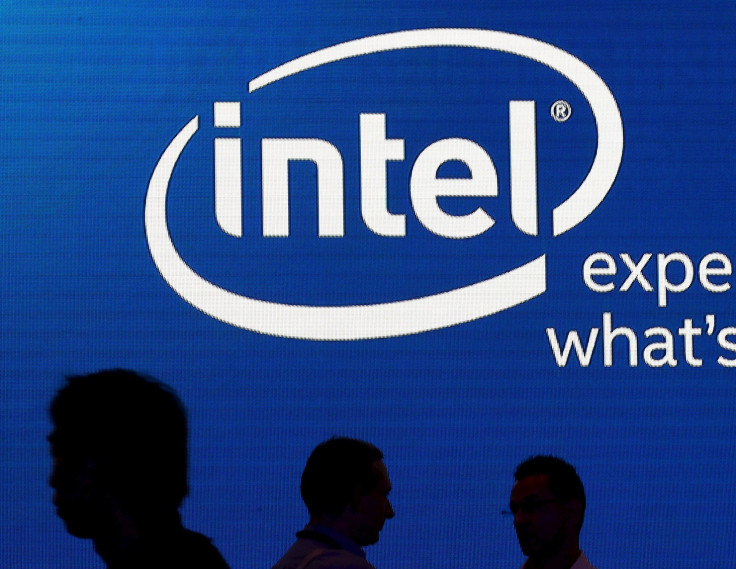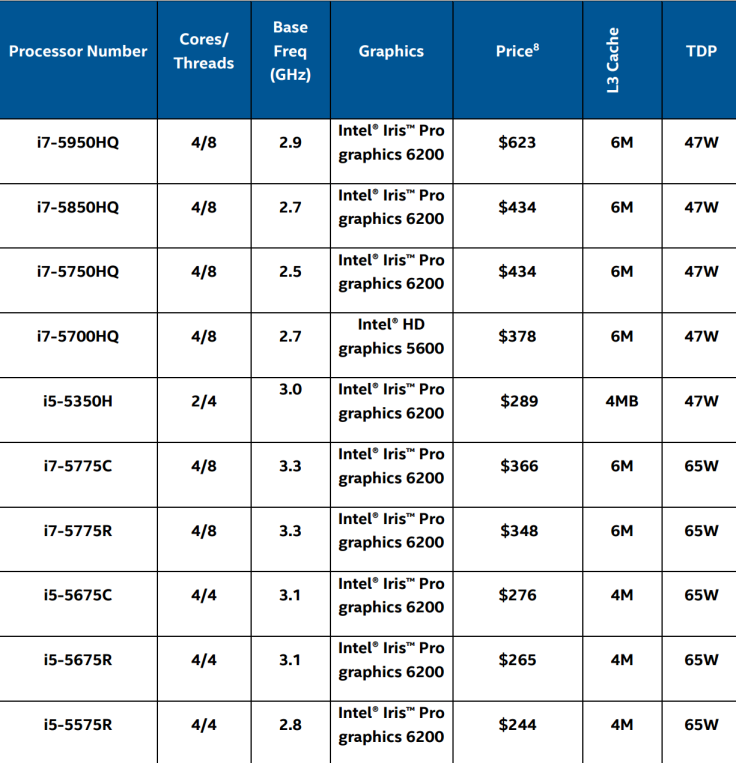Intel Core Chips 2015: What You Need To Know About Quad-Core Broadwell

Intel makes it hard for consumers to keep track of its chips. A Core i7 is nominally better than a Core i5, but this year's Core i5 can have superior performance to last year's Core i7. So if you're considering buying a new high-end laptop or desktop this year, you should pay attention to the line of chips Intel announced on Wednesday in Taipei.
This chart is a good summary:

All of the chips above are except for the i5-5350H are quad-core chips. The five models marked as 47W will end up in laptops, and the others are headed for desktops.
People who know about chips are fired up about Intel's new 128MB cache and the fact that the models that end in "C" are overclockable. But for most people, the biggest thing to get excited about is the Intel Iris Pro graphics cards, which can help your computer run games and graphics software without the need for a pricey separate discrete graphics processor. Intel graphics have been getting a lot better lately, and if you ever run Photoshop or a first-person shooter from time to time, you'll probably want the Iris Pro graphics 6200 in your machine.
The top three chips on the list are great candidates to land in MacBook Pros, although it's not clear when that will happen. Just last month, Apple updated the line and added a new trackpad, faster storage, and tweaked Intel chips from last year. The refresh timing suggests that Apple might be sitting this generation of chips out. Still, you should see these chips end up in high-end Windows laptops starting in July.
Another thing to keep in mind is that Intel updates its chips on a "tick-tock" cadence. One year, it does a major revamp, and the year afterwards, it tweaks and refines its design -- like what Apple does with its S series of phones. Broadwell, the current generation, is a "tock," or a refinement cycle, and it was delayed several times, meaning that Intel's next "tick," Skylake, will likely be announced before the end of 2015. Some might want to wait for that line of chips, which promises several major improvements, such as lightning-fast wireless transfers known as WiGig.
© Copyright IBTimes 2024. All rights reserved.












